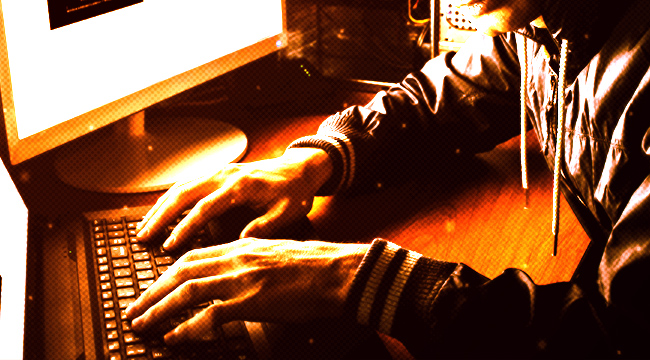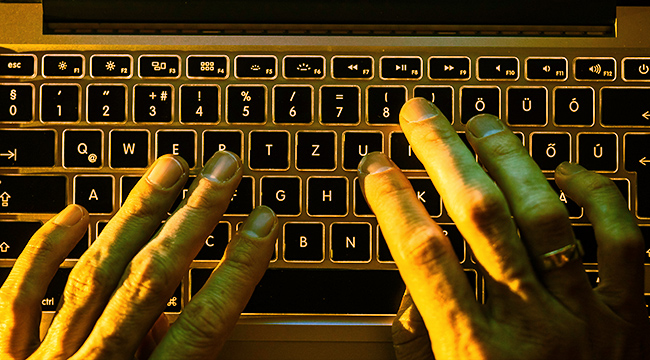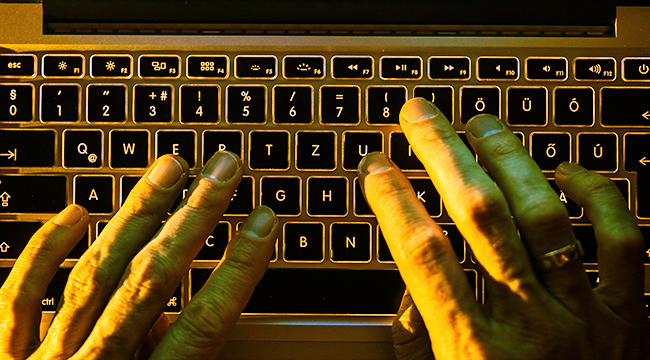
The strangest story of the past few weeks — aside from when NASA had to defend themselves against claims of running a child slave ring on Mars — is surely the saga of HanAssholeSolo, an internet troll who created a gif of Donald Trump beating up CNN, which the POTUS then tweeted from his official account. Soon after news of Solo’s handiwork and internet history (peppered with racist comments) broke, CNN revealed that they knew his real name, forcing Solo to post a lengthy mea culpa, excise his online existence, and slink off into the shadows.
This chain of events opened up public debate about whether CNN had committed blackmail in threatening to reveal Solo’s details, whether Solo was at fault for his online behavior in the first place, and the entire construct of identity online. In his apology, Solo wrote that who he was online wasn’t who he was in “real” life.
“I am no kind of way this person,” he promised, referencing a history of posts that he admitted were racist, bigoted, and anti-semitic. “I was trolling and posting things to get a reaction from the subs on reddit and never meant any of the hateful things I said in those posts.”
But as we near singularity, when virtually everyone has an online footprint, can that really be true? Is it possible that someone’s “online” and “real-life” personas could lead two separate existences? Could someone with a history of penning racist invective for (by his admission) the sake of attention truly also be someone who “loves and accepts people from all walks of life?”
It presents an interesting thought experiment. Could someone who isn’t a virulent racist sit down, type the things that Solo did, and then release them into the world? Try it for yourself. I did and found it impossible. Not just because of my notions of what it means to be a good person, but because being actively hateful takes an instantaneous toll, anonymous or not. Perhaps I’ve written under my own name for so long that anonymity seems like a foreign concept, but attempting to type out something flagrantly racist made me break out into an anxious sweat.
For me, there’s no delineation between the internet and real life. We spend so much time of our lives on the WWW — a recent stat puts the american average at 10 hours of screen time per day — that the distinction seems academic at best. Who are you if not your Facebook, your Twitter account, and the number of Instagram followers you possess? How can the person you play on Reddit not impact your personality, and vice-versa?
“Who someone is in an anonymous context is probably a more accurate reflection of who they are and how they behave than a non-anonymous context,” says Erin Buckels. She’s the lead author of a recent groundbreaking study of the personality patterns of online trolls, which looked at the connection between trolls’ actions and “dark” personality traits including narcissism, Machiavellianism, psychopathy, and subclinical sadism.
Buckels acknowledges that we all say some horrible things under certain situations, but the difference between someone cracking an offensive joke out of, say, ignorance or a need to be seen edgy and relevant — the guy who inspired extreme backlash when he tweeted that he too wanted to die when listening to Ariana Grande immediately after the Manchester bombing, for instance — and a Milo Yiannopoulos is what their behavior looks like over time, how unyielding it is.
“The best predictor of future behavior is past behavior,” Buckels says.

What about Solo’s assertion that he just got “caught up” in all the attention? We all want to belong, so that makes some sense. But doesn’t that also say something about the troll’s true identity?
“It’s very possible that he didn’t mean these racist things,” Buckels says, “but the intention to provoke people is there.”
That intention can be dangerous on its own. For an example, look no further than conspiracy theorist Alex Jones. Jones’ attorney claimed that he’s an entertainer, a “performance artist,” rather than a reporter, but that doesn’t stop his followers from taking his claims at face value, disseminating his ideology and using it, as in the case of Edgar Welch, the man who opened fire at a DC restaurant purported by Jones to be at the center of #pizzagate, to justify actual physical harm.
In Buckels’ opinion, the kind of compartmentalization that Solo’s claiming doesn’t seem likely. Adult personalities, much research suggests, are fairly consistent. Not all aspects will be visible to all people and in all situations, but if part of your make-up is a desire to provoke others, and if that part of you is strong enough that you’d create an entire online history of racist posts (for attention or otherwise), it’s impossible that it just disappears when you’re not connected to the internet
What’s more possible is the fact that Solo (and people like him) actually do believe that they can differentiate between their real and online personas. And that that belief, that these two parts of them aren’t just diametrically opposed but separate, can help them preserve their own believe in their goodness as well as their righteousness. It’s a defense mechanism, one many employ in order to alleviate fears that they’re on a bad path.
“Some of these people who possess dark personality traits [especially narcissism], they’re self deceptive,” Buckels says. “Maybe they’re not necessarily aware that they believe the things they’re accused of. In Solo’s case, maybe at a conscious level he believes that he doesn’t actually believe what he posts, but on an unconscious level, maybe he does. Maybe that’s where all this hatred is coming from.”
This is evidenced in everyday life as well. Consider Natalie Hage, the plus-size model who was fat-shamed on the plane last week. When she confronted the man who made fun of her, his first response wasn’t an apology. Instead, he defended himself by saying that the things he was being accused of — texting disparaging remarks about someone’s size — wasn’t something he would do, even though he’d literally just done it. And then, like Solo, he tried to justify his actions. In both cases, you’ve got to wonder: Are the perpetrators justifying their behaviors to the victims or trying to convince themselves that they’re not bad people despite evidence to the contrary? To accept wrongdoing wouldn’t just be saying something about their behavior, it would be saying something about their very personhood.
Solo’s apology is a prime example of this. In his carefully crafted missive, he agreed that he’d done wrong, but also said that he’d be using this situation as a learning experience. He hoped others would choose to see it as a learning experience, as well. In the end, it somehow seemed that the only way Solo was able to reconcile how he was being portrayed to the public versus how he saw himself was to convince himself that he was being misportrayed by the triggered snowflakes. He thought of himself more as someone who wasn’t completely free of culpability but also someone who wasn’t truly at fault. Certainly not someone who deserved the backlash that he was getting.
He completely abandoned his online identity, hoping that it would never bubble over into his “real life” although we could argue that his real life was online, where the people he’d been celebrating his GIF glory with reside.

Is unmasking Solo the right thing to do? Buckels doesn’t believe so, although she does understand the appeal. Her reasoning is that there are many more people like Solo out on the internet — even more who are worse. But there’s another reason that leaving him alone to lick his wounds may be the best course of action: It’s much easier to double down when you’re confronted and attacked, even when the criticism is deserved. Chadwick Moore, for instance, a gay writer who penned an OUT profile of Milo Yiannopoulos which was widely reviled by the LGBT+ community, wasn’t able to accept the backlash that his piece garnered. Instead, he’s gone full-on conservative, embracing the far right.
There’s that danger with Solo and others like him. He may not be who he he denies being yet, but the ego is fragile, and too firm a push may take his hatred to the next level — out from the internet and further into the real world. It’s a self fulfilling (or self-justifying) prophecy. Of course, handling trolls with kid gloves allows them to feel powerful and to bask in it, and that power is what they wanted in the first place.
As of this writing, Solo (or someone claiming to be him convincingly enough to pacify the mods of a subreddit devoted to him), has returned to Reddit. He’s posted an AMA, one which doesn’t answer many questions (he still doesn’t want to be identified) but suggests that his sincere apology wasn’t so sincere after all. He’s back because he’s confident that CNN won’t publish his details and he’ll sue them if they do. And his sense of humor remains the same. Outside of reminding everyone that he wouldn’t give away his identity, Solo answered only one question.
“Whomst’d’ve do you hate more: Jews or Muslims?” a user asked.
“Juslems,” Solo replied.
It’s an ugly thing to say, but it sure does seem like a true representation of its author.






